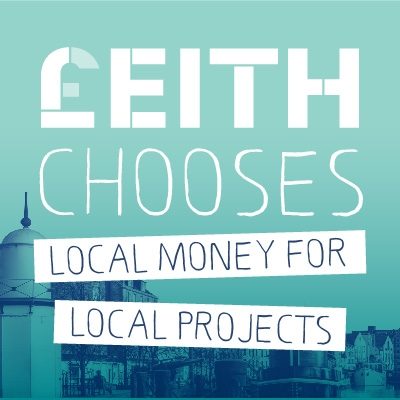£eith Chooses – voting to take place online this month
The participatory budgeting project in Leith, £eith Chooses, has around £50,000 to hand out to organisations and bodies in the area.
This money is provided from the council’s Community Grants fund, and locals become more involved in the way the public funding is spent as a result of the application and voting process.
Applications closed on 11 December and these are now being validated ahead of a shortlist being compiled.
The shortlisted applicants, who may be awarded up to £5,000, are showcased on the £eith Chooses website. There will then be a week of voting from 25 to 31 January 2021. Eligible groups have to have a constitution and a bank account to qualify. They were all invited to put forward a good idea for a six month community project on themes related to challenging food poverty in Leith or reducing isolation and ensuring connectedness.
The voting week in January will take place on the council’s Consultation Hub.
The Steering Group behind the budgetary process are mindful of the fact that not everyone can access the online vote, but it is thought to be the best option during the pandemic restrictions. They conducted a survey in September to decide whether or not locals wished to proceed with an online version of the event.
Usually on the day when locals can cast their vote there is a grand meeting of those on the shortlist and a bit of lobbying goes on as you pass each of their stalls. It is a real community day with a lot of fun alongside the main business. While that will not be possible the money is still there to be divided fairly.
When the results are announced, the funding will be paid over to the successful projects in early February.
In 2020 the following received grants from £eith Chooses:
| YMCA | £5,000 | |
| Multicultural Family Base | £5,000 | |
| NE Edinburgh Foodbank | £5,000 | |
| Feniks | £3,808 | |
| Citadel Youth Centre | £4,990 | |
| Leith DIY Skateparks | £4,500 | |
| ELREC | £5,000 | |
| Projekt 42 | £3,900 | |
| Pilmeny Dev. Project | £3,870 | |
| Dr Bells Family Centre | £3,556 (partial funding) |
Participatory budgeting began in Porto Alegre in Brazil and the strengthening of governance there helped the city to prioritise its services. In Scotland there was a pilot project in Govanhill, Glasgow called Equally Well which allocated £200,000 of government money to local projects.

